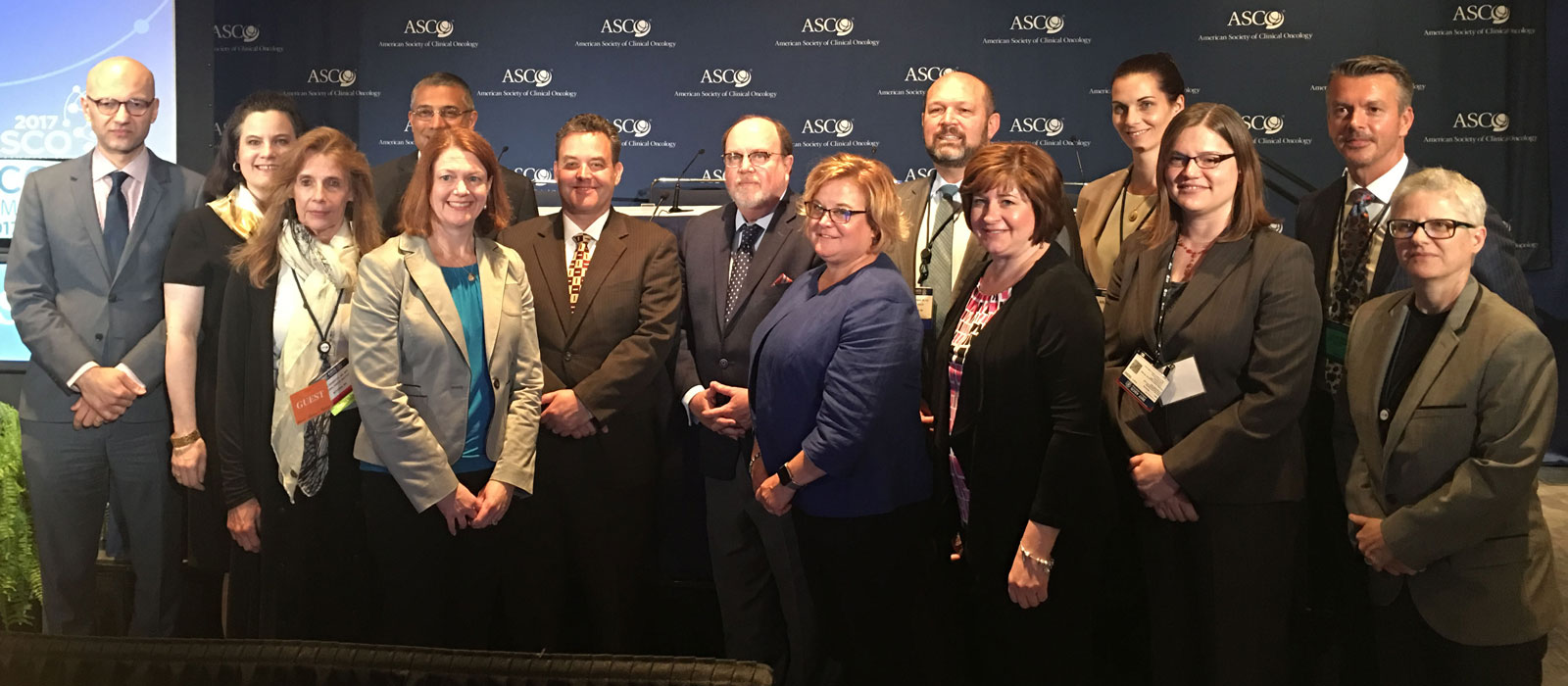For oncology nurses, physicians, and care professionals, the importance of implementing tools to collect and analyze big data cannot be understated. Through collaboration and multidisciplinary tactics, data can help drive improvements in the way patients are treated.
CancerLinQ (CLQ), a not-for-profit subsidiary of the American Society of Clinical Oncology (ASCO), offers a data platform for oncology professionals to collect and analyze data about patient care, treatment, and encounters, which will potentially lead to better outcomes through data-drive results. This health information technology is aimed to improve the way practitioners treat their patients diagnosed with cancer. ONS is a member of the new CLQ Oncology Leadership Council (OLC) and, along with a number of other sister organizations, will help ensure the CLQ meets the needs of practitioners and patients alike.
The OLC’s goal is to ensure that the CLQ program is working across disciplines to ensure needs are addressed across the entire cancer care continuum. ONS and representatives from organizations like the American Society of Radiation Oncology, the Society for Gynecologic Oncology, the College of American Pathologists, the U.S. Food and Drug Administration, the National Cancer Institute, and more came together to help advise the CLQ board on long-term strategic goals and best practices, while offering expert perspectives from across the spectrum of healthcare professions, technology, and stakeholder communities.
The Importance of CLQ and Big Data
Michele Galioto, RN, MSN, ONS’s assistant chief clinical officer and representative on the OLC, noted CLQ’s potential impact on the future of oncology care.
“Using big data to answer critical clinical questions will move the science of cancer care forward, far greater than if we continued relying solely on randomized clinical trials,” Galioto says. “Most clinical trials control for treatment history, comorbid conditions, age, etc., but don’t fully reflect the true demographic of those considering and receiving cancer therapies. In fact, most clinical trials exclude patients older than 65 years of age, yet the numbers of those older than 65 seeking treatment continue to grow. How do we know what is most effective or what’s detrimental to this patient population? By leveraging big data, we can learn from treatment and symptom management interventions provided to those who fall outside the typical randomized clinical trial scenario. It will help us understand and move towards data-driven decision-making to improve treatment options and how care is delivered on an individual level.”
As more details are refined and put into place for the CLQ, oncology nurses will find applications for the program that could help determine unique patient profiles and the care they should receive.
Galioto gives an example: “Consider you have a patient who is 70 years old with a new diagnosis of non-small cell lung cancer and a history of type 1 diabetes. What treatment is best for him? I can query the CLQ data for patient profiles just like him, including age, diabetes, even genetic markers, to see how others like him have responded to a variety of treatments, what their treatment experience was, etc.”
The benefits extend beyond potential treatment plans and could allow further education for patients that facilitate shared-decision making. Galioto says, “Now I can have a more informed conversation with my patient about treatment options, how his situation is similar—or not—to others, and why I would recommend certain treatments over others.”
Oncology Nurses Can Help Contribute to CLQ
ONS and CancerLinQ staff are collaborating on the development of the CancerLinQ Ambassador program. Ambassadors will foster improved, innovative workflow changes to best utilize CancerLinQ tools to improve patient care.
ONS is currently recruiting interested oncology nurse members for ambassador opportunities to the ASCO CLQ program. Find more information at ONS’s official ambassador webpage or by contacting Deborah Struth at CLQAmbassador@ons.org.






